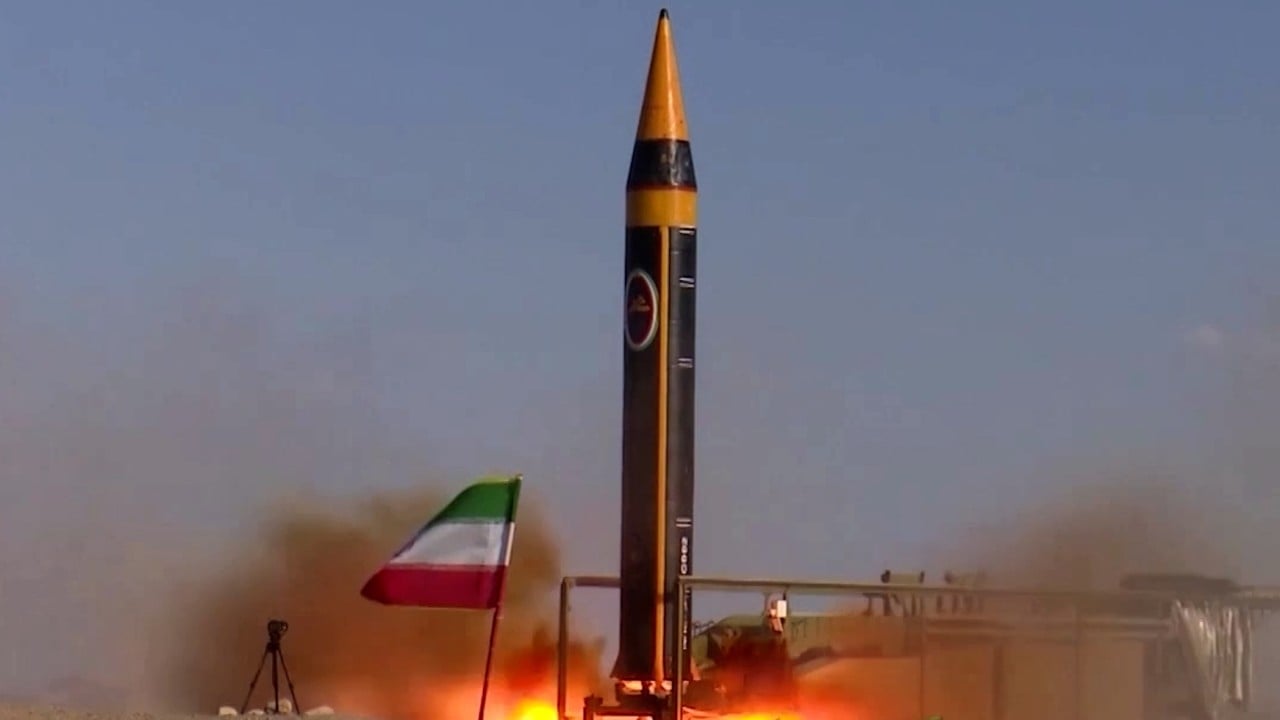
Saudi Arabia needs stronger nuclear safeguards to dispel alarmist fears about weaponisation
- Saudi Arabia’s nuclear energy programme can include further IAEA safeguards to ease concerns about an arms race in the Middle East
- While the kingdom has flagged the Iranian nuclear threat, the US should also realign its outdated views on proliferation
Such fears have been sparked by its stance on the Iranian nuclear threat and its non-commitment towards stronger safeguards under the aegis of the UN nuclear watchdog, the International Atomic Energy Agency (IAEA).
Saudi Arabia then surprised observers by belatedly agreeing on Monday to accept oversight of its nascent nuclear-energy programme by the IAEA, ending more than a decade of resistance to pressure from the United States.
Nuclear energy is still ‘on the cards’ for Asian countries despite Fukushima row
Salman also wanted the US to help Saudi Arabia develop its nuclear-energy programme, which is currently limited to a small research reactor supplied by Argentina and regulated by South Korea.
The kingdom already has plans. In 2011, it unveiled its aims to construct 16 nuclear reactors by 2035 at an estimated cost of US$80 billion, but progress towards that goal has been slow.
However, the US is reluctant because Saudi Arabia wants to exercise its right as a signatory of the Treaty on the Non-Proliferation of Nuclear Weapons to mine and enrich its substantial uranium reserves.
Western and Israeli politicians often argue that Saudi control of the full nuclear-fuel cycle would give the country the know-how to develop atomic weapons at a later stage.
Technically, the Saudi decision to sign a comprehensive safeguards agreement means Riyadh has enabled the IAEA to “draw more accurate and comprehensive conclusions about safeguards” from its inspections, said Ludovica Castelli, a nuclear researcher at the University of Leicester.
It also entails greater coordination between the Saudi authorities and the IAEA on the peaceful uses of nuclear energy, she said.
“This aspect confirms the ambitious Saudi plans to step up its nuclear energy programme,” Castelli told me in an interview this week.
The parallel decision to rescind the IAEA’s outdated small quantities protocol provides more assurance about Saudi Arabia’s peaceful nuclear activities through greater transparency.
But that is unlikely to persuade the US to help Saudi Arabia develop its nuclear-energy programme unless Washington and Israel can reach an understanding about the scope of the kingdom’s uranium enrichment as part of the normalisation agreement.
In theory, Riyadh should be able to dispel concerns about any nuclear weapon programme by agreeing to the IAEA’s Additional Protocols (AP) regime, which Iran accepted under the terms of the 2015 nuclear deal it signed with all five permanent members of the UN Security Council and Germany. Riyadh has yet to state its intention to abide by the AP regime.

The US and Israel remain reluctant to endorse Saudi Arabia’s plans to develop and enrich its uranium reserves, estimated at 90,000 tonnes according to a joint survey conducted by the Saudi Geological Survey and China National Nuclear Corp.
But this stance is as flawed as the Cold War-era arguments about a domino effect of nuclear-weapons proliferation. What is crucial is not whether Saudi Arabia embarks on uranium enrichment, but its safeguards that pose the greatest concern.
Were Riyadh to sign up to AP monitoring, it would show the country’s commitment to the non-proliferation regime and “reassure” the international community of its nuclear intentions, Castelli said.
But it still probably would not be enough to assuage US reservations about regional proliferation because of its determination to preserve Israel’s status as the Middle East’s sole nuclear-weapons state.
Saudi Arabia, UAE taking ‘a step away’ from US with Brics membership: analysts
While it is widely understood to have them, Israel has along-standing policy of neither confirming nor denying that it possesses nuclear weapons.
Fitzpatrick estimated that Israel possessed about 80-90 nuclear warheads and enough fissile material for up to a total of 200 warheads. The country also has the capability to launch nuclear weapons via warplanes, ballistic missiles, and Dolphin-class submarines that it had acquired from Germany, he added.
The Saudi nuclear narrative is typically tied to Iran’s nuclear politics, and this has generated alarmist views over Riyadh’s intentions.
If Saudi Arabia is denied American help, it could develop its nuclear-energy programme with China, Russia and France, but any such deals would likely be subject to Riyadh’s acceptance of the IAEA’s AP regime.
‘Ridiculous’: UN body slammed after approving release of treated Fukushima water
Ultimately, in contrast to the estimates of Israel’s nuclear arsenal, fears over Saudi Arabia’s atomic-energy programme have been overblown as it has barely got off the ground.
Riyadh’s statement about the right to uranium enrichment does not mean “a motive for proliferation”, and many states with nuclear-energy plants “have not weaponised” their capabilities, said Amnah Ibraheem, a Bahrain-based nuclear-research analyst for the Gulf with the International Institute of Strategic Studies.
“We are very far away from a nuclear-weapons programme in Saudi Arabia, including the technical capacity to include that as an option,” she said.
Tom Hussain is an Islamabad-based journalist who has covered South Asia and the Middle East for more than three decades.


